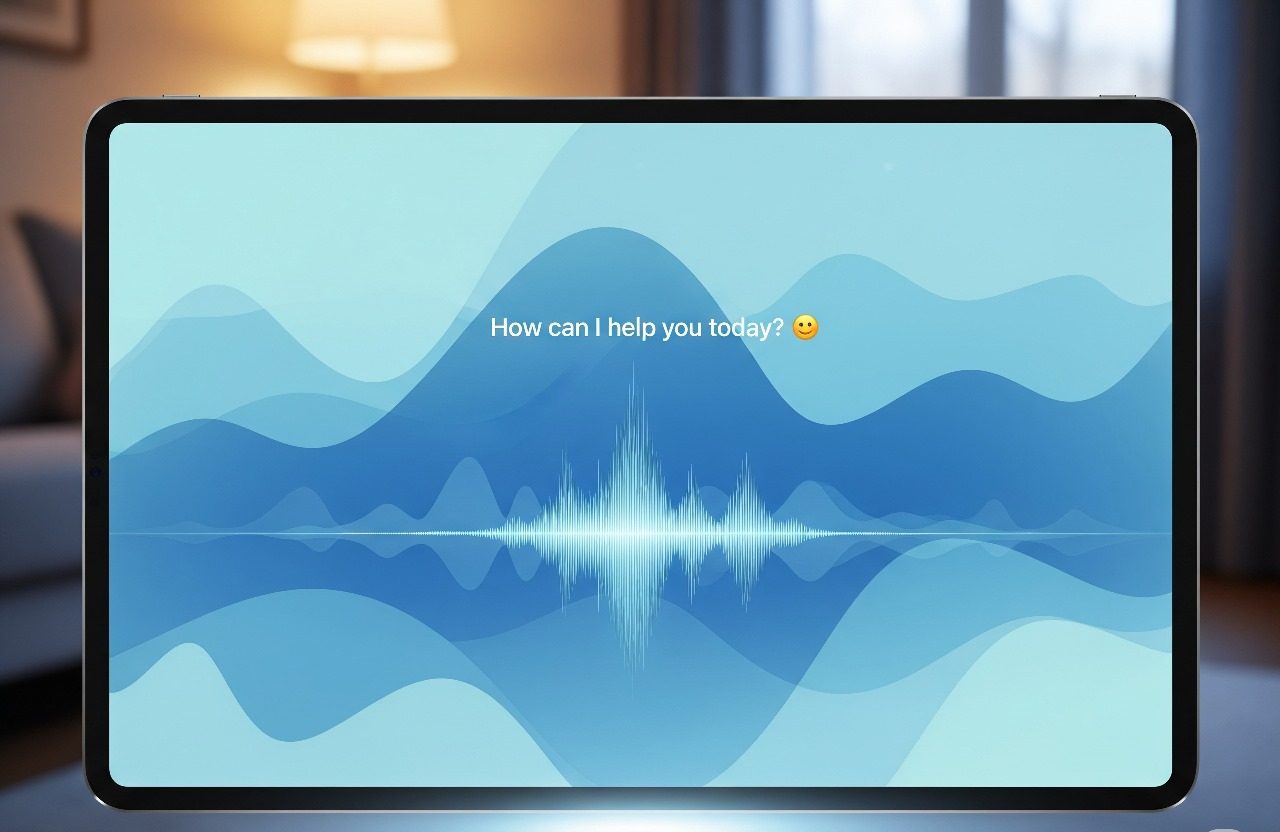Table of Contents
The era of “robotic” voices is officially behind us. In 2026, the gap between human and synthetic speech has not just narrowed it has effectively closed. Whether you are a content creator looking for the most realistic narration, a developer building a real-time voice agent with sub-50ms latency, or a privacy advocate wanting to run high-fidelity models locally on your Mac, the landscape has exploded with options.
This guide cuts through the marketing noise to benchmark the top tools, open-source models, and APIs defining the industry this year.
Quick Summary: Top Picks by Category
If you need an immediate recommendation, here is how the top players stack up in 2026.
| Category | Winner | Why it Wins |
|---|---|---|
| Best for Realism | ElevenLabs / Inworld | ElevenLabs remains the gold standard for emotional range, but Inworld has taken the #1 spot in recent 2026 benchmarks for pure fidelity. |
| Best Open-Source | Kokoro-82M | Incredible efficiency. Runs on consumer hardware with quality that rivals cloud APIs. |
| Best for Enterprise | Amazon Polly | Unbeatable reliability and scaling pricing ($4-$16 per 1M chars) for massive workloads. |
| Best for Latency | Cartesia Sonic 3 | The speed king. Delivers audio in ~40ms, making it the only viable choice for seamless real-time conversation. |
Deep Dive: Top Commercial TTS Tools Reviewed
For those willing to pay for convenience, cloud-based platforms offer the highest quality with zero setup.
ElevenLabs Review: Is it Still King?
Despite rising competition, ElevenLabs remains the market leader for creators. Its “Speech-to-Speech” and emotional control features allow users to direct the performance whispering, shouting, or laughing on command.
- The Verdict: It is the “Photoshop of Voice.” Expensive for high volume, but essential for premium storytelling.
- Cost: Subscription-based. High tiers can reach $20 per 1 million characters.
Speechify: The Mobile Productivity Powerhouse
While less focused on “voice cloning” for developers, Speechify dominates the consumer space. It excels at reading existing content PDFs, emails, and articles turning the web into a podcast.
- Best For: Students and professionals with heavy reading loads.
Murf.ai: Best for Corporate Video
Murf has carved a niche in L&D (Learning and Development). Their studio editor allows you to sync voice perfectly with video frames, making it the superior choice for corporate training modules where timing is everything.
Amazon Polly & Google Cloud: The Cost-Effective Giants
These “hyperscalers” focus on utility over hyper-realism. While they lack the “breathiness” of ElevenLabs, they are incredibly cheap and stable.
- Cost: Roughly $4 to $16 per 1 million characters.
- Use Case: IVR systems, reading long news articles, and accessibility features.
The Open-Source Revolution: Running TTS Locally
2026 is the year of “Local AI.” New architectures allow you to generate professional-grade audio on your own hardware, free of cloud costs and privacy concerns.
Why Run Locally?
- Privacy: Your voice clones and scripts never leave your machine.
- Cost: $0 monthly fees. You only pay for electricity.
- Latency: Zero network lag.
Spotlight: Kokoro-82M (High Quality, Low VRAM)
Kokoro-82M is the breakout star of 2026. With only 82 million parameters, it is shockingly lightweight.
- Hardware Req: It runs comfortably on a standard NVIDIA GPU or even Apple Silicon (M1/M2/M3) via MPS acceleration.
- Performance: It delivers “neural” quality (breathing, pausing) without the heavy compute tax of larger models.
Spotlight: Fish Speech (Multilingual & Expressive)
If you need to clone voices across languages, Fish Speech (V1.5) is the go-to open-source model. It handles code-switching (e.g., speaking Spanglish) better than most paid APIs.
Spotlight: Qwen3-TTS (Voice Design)
Qwen3 introduces “Instructable TTS.” Instead of just tweaking sliders, you can prompt the model with natural language:
“Speak this sentence with a sarcastic, skeptical tone, accelerating slightly at the end.”
Technical Guide: Architecture & Latency
For developers building the next generation of AI apps, understanding the stack is crucial.
Understanding Neural Vocoders
Modern TTS isn’t just stitching sounds (concatenative). It uses Neural Vocoders generative models (often GANs or Flow Matching) that predict the audio waveform from scratch. This is why 2026 models sound human; they are “hallucinating” the speech patterns rather than retrieving them.
Latency Benchmarks: Who is Sub-100ms?
For a voice agent to feel “human,” the Time-to-First-Audio (TTFA) must be under 300ms.
- Cartesia Sonic 3: ~40ms (Instant).
- Speechmatics: ~80-100ms.
- OpenAI Realtime API: ~250ms.
- Standard HTTP APIs: 500ms+.
Hardware Benchmarking for Local Models
How fast can you generate on your machine?
- NVIDIA RTX 4090: Real-time factor of 0.05x (Generates 1 minute of audio in 3 seconds).
- Apple M3 Max: Real-time factor of 0.1x.
- CPU Only: Real-time factor of 0.8x (Barely faster than speaking).
Pricing Analysis: Hidden Costs & Value
When budgeting for TTS, look beyond the headline price.
Subscription vs. Pay-Per-Character:
- Subscription (e.g., Murf): Good for predictable monthly usage.
- Pay-as-you-go (e.g., Amazon): Essential for apps with spiky traffic.
The Hidden Integration Costs:
- Latency Tax: Cheaper models often have higher latency, forcing you to pay for expensive “Turbo” tiers if you need speed.
- Commercial Rights: Many “Free” tiers (even on ElevenLabs) require attribution or forbid commercial use. Always check the license.
Future Trends & Ethical Considerations
Real-Time Conversational AI
The boundary between LLMs (like GPT-5) and TTS is blurring. New “Speech-to-Speech” models process audio natively without converting it to text first, capturing laughs, sighs, and interruptions naturally.
Voice Cloning Ethics
With great power comes great responsibility.
- Watermarking: In 2026, invisible audio watermarks are becoming standard to identify deepfakes.
- Consent: Platforms are implementing strict “Voice Captchas” requiring the original speaker to verify their identity before a clone can be created.
Frequently Asked Questions (FAQ)
Q: What is the most realistic AI text-to-speech tool in 2026?
A: ElevenLabs is widely considered the industry benchmark for realism and emotional range. However, newer models like Inworld TTS and the open-source Fish Speech are rapidly closing the gap, with Inworld ranking #1 in some 2026 benchmarks for pure audio fidelity.
Q: Can I run high-quality text-to-speech locally for free?
A: Yes. Models like Kokoro-82M, Fish Speech (S1-mini), and Piper TTS allow you to generate professional-grade audio locally. Kokoro-82M is particularly noted for being lightweight while delivering quality comparable to cloud models.
Q: Which TTS API has the lowest latency for voice agents?
A: Cartesia Sonic 3 is currently the fastest, boasting a time-to-first-audio (TTFA) of roughly 40ms. Other low-latency contenders include Inworld TTS (sub-200ms) and specialized streaming models from Speechmatics.
Q: Is it legal to use AI-generated voices for commercial projects?
A: It depends on the plan. Most paid subscriptions (e.g., ElevenLabs Creator, Murf Pro) grant commercial rights. Free tiers often restrict usage to personal projects. Always verify the license, especially for open-source models like Qwen3-TTS (Apache 2.0).
Q: How much does enterprise-grade text-to-speech cost?
A: “Hyperscalers” like Amazon Polly charge roughly $4 to $16 per 1 million characters. Premium “expressive” providers like ElevenLabs can cost up to $200+ per 1 million characters.
Q: Can AI text-to-speech models clone my voice?
A: Yes. Tools like ElevenLabs, Qwen3-TTS, and OpenVoice allow for “voice cloning” using just a few seconds of reference audio. Quality improves with longer samples.
Q: What is the difference between Neural TTS and standard TTS?
A: Standard TTS stitches together pre-recorded sound snippets (robotic). Neural TTS uses deep learning to generate audio waveforms from scratch, resulting in natural prosody, breathing, and intonation.
Q: Are there open-source TTS models that support multiple languages?
A: Yes. Fish Speech V1.5 and Qwen3-TTS are leading open-source models that support multiple languages (English, Chinese, Japanese, German, etc.) with high accuracy.




